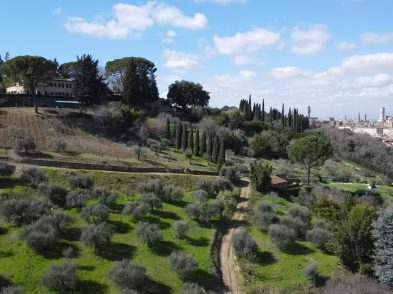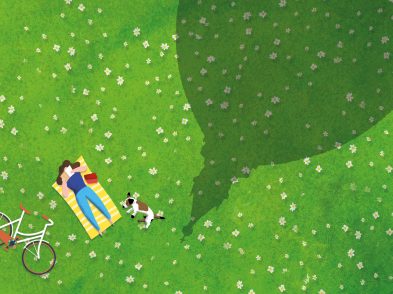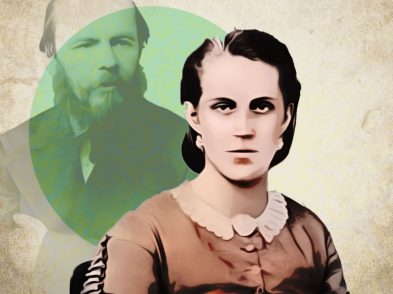A Wisconsin native and a resident of Parma, Wallis Wilde-Menozzi never stops exploring the power of words. Her poetry, essays and translations have appeared in Granta, Words Without Borders and Tel Aviv Review. She speaks to The Florentine about her career inspired by beauty, differences and origins in Italy.
Your latest book, Silence and Silences, is born out of a time where we were closeted away from the world. How do you reconcile writing about silence in such a cacophonous country like Italy?
There are so many kinds of silence: consider written silence and inner silence. If I think about noisy Italy, the silence of what is unsaid is most striking. Silence is everything that Italians don’t want to put into words. Noise is good cover: it keeps you busy and it’s exciting. Silence is something that isn’t articulated: it takes more courage and space to describe.
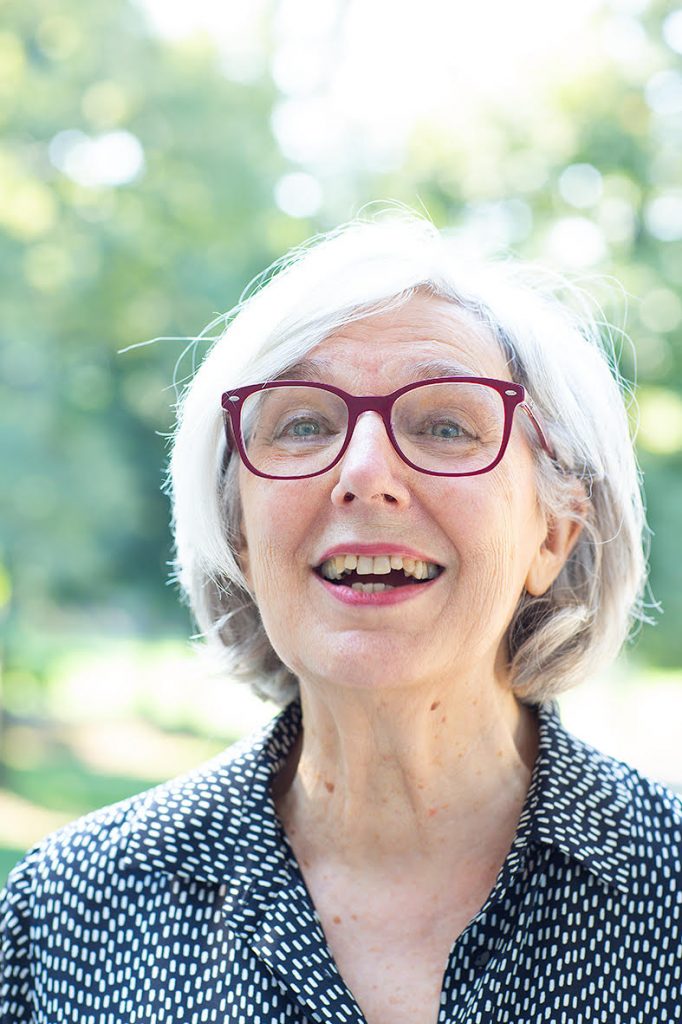
How did the book come about?
Two books before, I had been asked to write Mother Tongue, a memoir about living in Parma. I didn’t see my life as my subject. But once I was asked to write about living in Parma, I had to figure out how to narrate it. The interest for me was going to be about identity and language, not “they don’t have driers and we do.” By the time I wrote my third memoir, Silences, I understood my capacity to create an understanding of scale. How big is the individual in relation to culture? How big is one human being in relation to other histories? I thought a lot about Wordsworth, who broke the ice recounting his life coherently in poetry, but I wanted to get to where we are now. No one really has the authority anymore to just talk about themselves. Plenty of people are speaking, so honest narration can’t be, “I’ll tell you what silence is. Listen to me!” I wanted to open up little pockets where readers could think for themselves. I wanted the experience to be as interactive as possible.
You lived all over before settling in Parma. What was it about Parma that caused you to stay there and how has that transition been over time as a person and writer?
The basic reason was marriage to an Italian population biologist. His job, his family and our daughter rooted us there. Parma was the beginning of me committing to silence, living outside of my language. As one becomes a writer, much time is spent getting out of writing. Whereas in Parma, I was “in” writing and there were many doors I couldn’t quite get open. I had had wonderful jobs in many places, but Parma, unlike Florence, doesn’t have the same Anglo-Saxon history, meaning that I couldn’t find a shared mentality. Three years after my move there, unemployed, I was still sending out work in stamped envelopes. Then, from Switzerland, an editor wrote back: “All three of us are embarrassed because we haven’t heard of you, but you’re obviously a famous poet.” I thought he was kidding, but instead he published those poems. After that I did a lot of work for his literary magazine. The travelling started again. I started working out of Parma, but always returned to the family home.
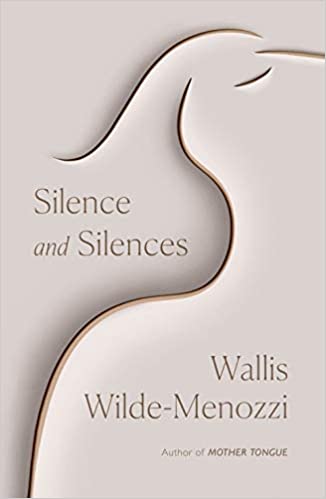
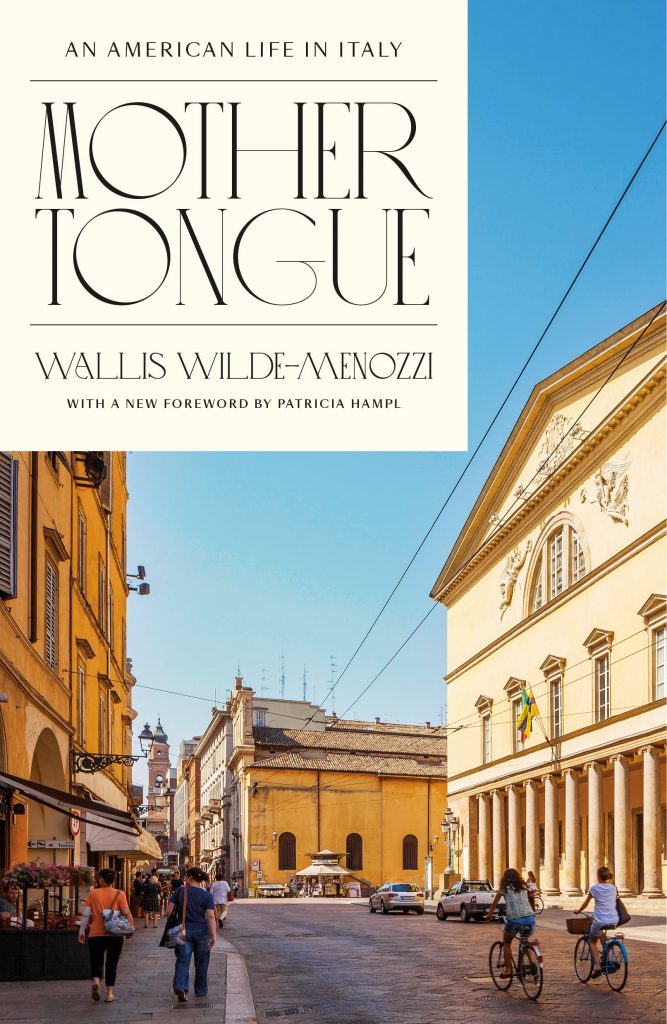
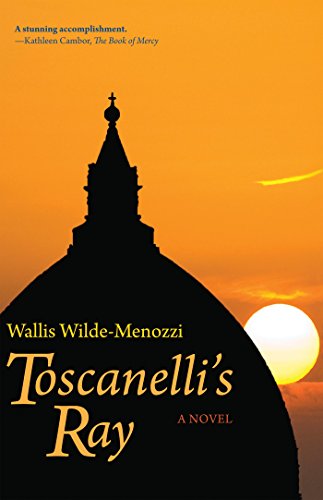
In 2013, you wrote your novel Toscanelli’s Ray, which is based in Florence and focuses on issues such as immigration and integration. What’s your relationship with the city?
My relationship to Florence goes way back. Since college, I’ve had a friend who lives in Florence, so I’ve had a 50-year pass. My friend suggested we attend a ceremony explaining the mathematician, astronomer and cosmographer Paolo dal Pozzo Toscanelli’s experiment on the summer solstice. As the ray passed through the gnomone in the cathedral, I had the sensation of receiving the novel complete. I didn’t want to write a book in which the Anglo-Saxon hero took centre stage and everyone else turned into the background. You have ideas for characters when you write; some tend to take over. I had to keep everyone’s life equally important. When I went to the States to get it published, many editors wanted to cut African characters and Africa out of the book. This was troubling, painful and prescient to problems we still face.
Ian McEwan recently came to Florence and spoke about the importance of memory in great literature. How do you view memory and how do you use it as a device in crafting a novel?
It’s complicated and it becomes difficult as you get older! I was recently teaching in Geneva and met a woman who is publishing a book about the childhood memories she shared with her twin, who now lives elsewhere. Their memories of the same events are very different, and that is the point of their book. Of course, we all believe in our memories, but to deepen them we should ask for other memories. To allow people to add, particularly when it comes to issues such as human rights, can only enlarge the truth.
How do you feel about writing as a calling as opposed to something that you retreat or retire from?
In the US, your writing is examined by marketers. It can be over-simplified, categorized. To be a writer you need the freedom to listen to editors, but also the freedom to write for however many and whoever you want. Some books need to be there for somebody, but are not for everyone. Publishing has more than economic pressures around it. The written word is coming closer to ideology. Language has to take us somewhere else. My editor, Jonathan Galassi at FSG, is powerfully committed to a writer’s freedom as essential.
Tell us about your involvement with Words Without Borders, the award-winning digital magazine that promotes underrepresented authors not easily accessible to English speakers.
I translated three marvelous Italian poets, Antonella Anedda, Mariangela Gualtieri and Elisa Biagini, for a feature. An interview with me on Parma will soon run. I’m seeing not only more underrepresented countries in the magazine, but tribal languages and dialects. Like the disappearing forests, we are waking up to forgotten patrimonies and various ways of knowing. Translation is the perfect place to register diversity.
Are there certain writers or works that inspire you?
When I’m writing I don’t read a lot. But I have just finished The Nutmeg’s Curse and I found it quite stimulating. The author, Amitav Ghosh, is willing to take risks. In this book, he opens it with Dutch genocide in Borneo in the 1600s and parallels it with settlers in Connecticut who are doing the same to a tribe of Native Americans. He explores memory and the fact of exterminating language as a first step in imperialism, which centuries on can be found, for example, in our climate crises. He doesn’t try to tie up every loose string as he makes his points. I’m fascinated by this cross-culture weaving of multiple causes and effects, putting together different narratives in the same piece, letting them establish relations, and allowing the reader space to figure them out.



